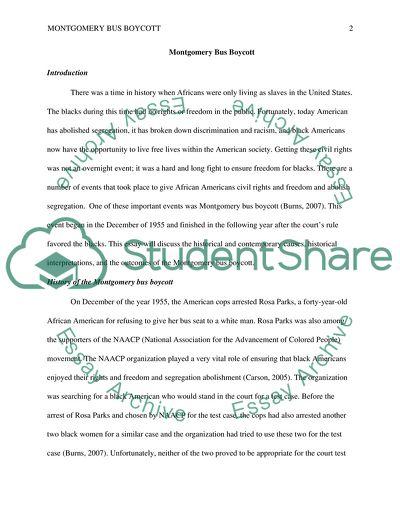Cite this document
(Montgomery Bus Boycott Essay Example | Topics and Well Written Essays - 2500 words, n.d.)
Montgomery Bus Boycott Essay Example | Topics and Well Written Essays - 2500 words. https://studentshare.org/history/1816883-montgomery-bus-boycott
Montgomery Bus Boycott Essay Example | Topics and Well Written Essays - 2500 words. https://studentshare.org/history/1816883-montgomery-bus-boycott
(Montgomery Bus Boycott Essay Example | Topics and Well Written Essays - 2500 Words)
Montgomery Bus Boycott Essay Example | Topics and Well Written Essays - 2500 Words. https://studentshare.org/history/1816883-montgomery-bus-boycott.
Montgomery Bus Boycott Essay Example | Topics and Well Written Essays - 2500 Words. https://studentshare.org/history/1816883-montgomery-bus-boycott.
“Montgomery Bus Boycott Essay Example | Topics and Well Written Essays - 2500 Words”. https://studentshare.org/history/1816883-montgomery-bus-boycott.


